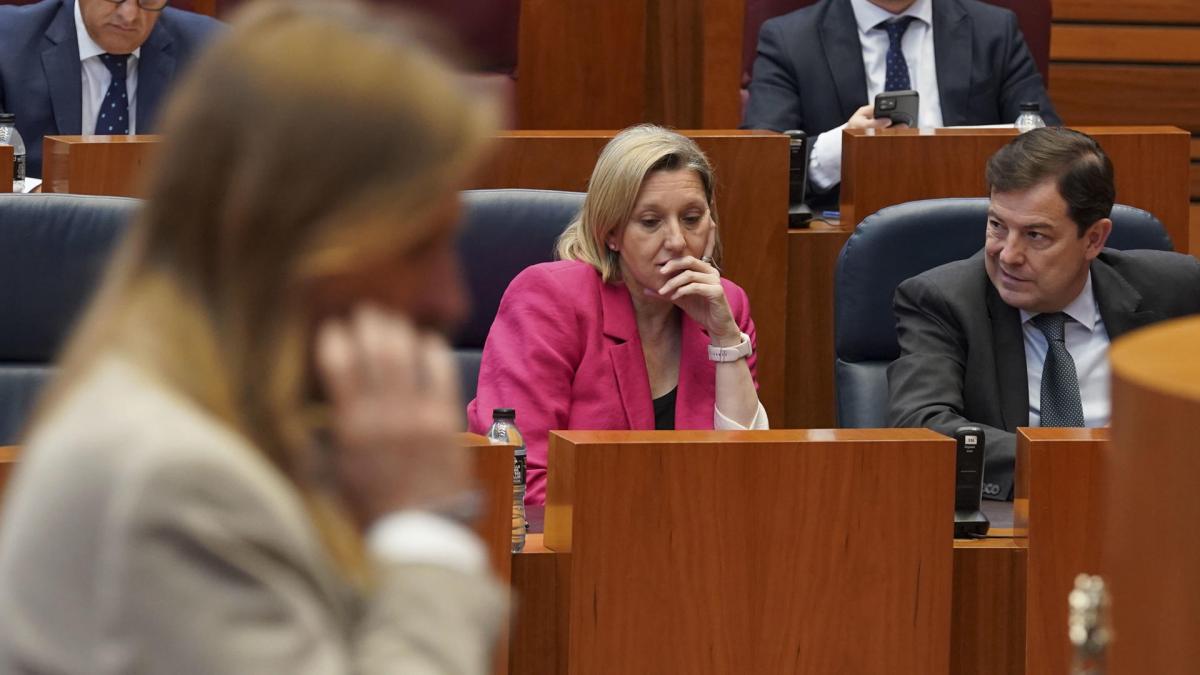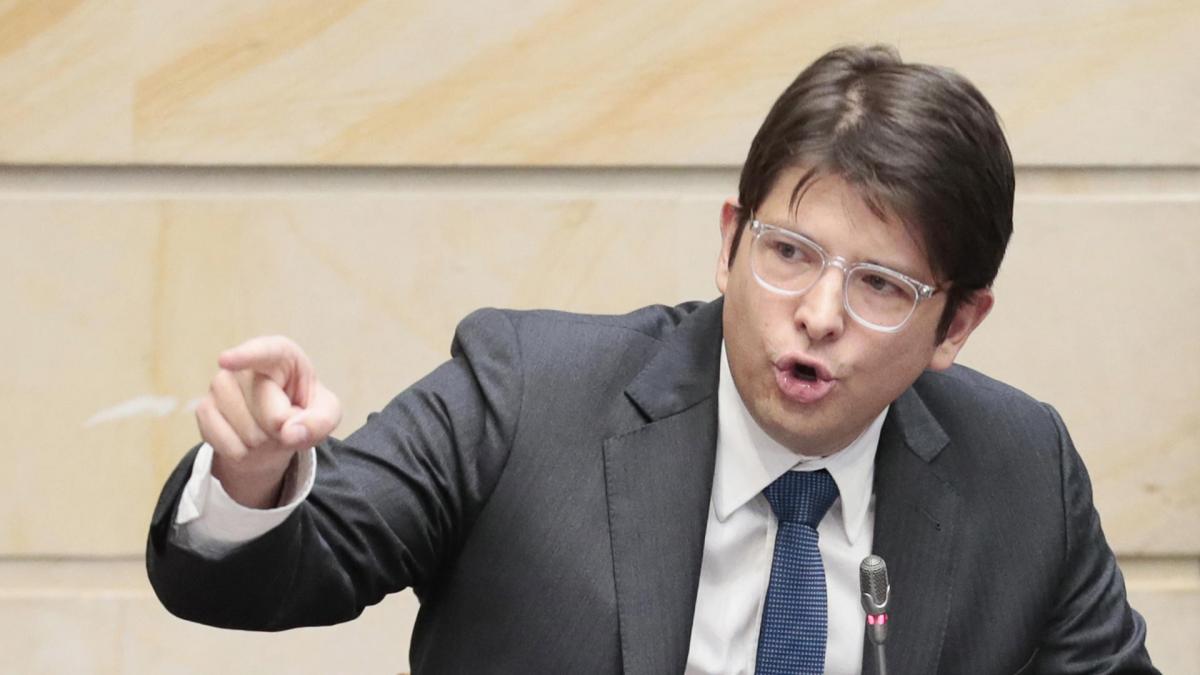Neither the union abstentions of the Leonese people (UPL) and Soria already! Not even the votes against Avila and the two former deputies not assigned from Vox, have prevented what is already a fact: for the first time in 37 years, the PP has lost the vote of a law in the Courts of Castilla y León. The reform of the Institutional Advertising Law has come forward this Wednesday with the support of PSOE, Unidas Podemos, Vox, Francisco Igea and that of the other members of the Mixed Group. In total, 41 votes in favor against 34 against.
The author of the proposition, the Unidos Podemos spokesman, Pablo Fernández, has described the “historic day” day and has defended that the new standard will serve to end “more than three decades of media control by the PP”. In his opinion, the popular have used for years the distribution of institutional advertising to reward related media and punish critics, a practice that is intended to correct. “They have used everyone’s money to silence the opposition and reward who laughed at them. That is over,” said the purple deputy from the gallery.
Fernández has recognized that the text is not perfect. “Yes, this law proposition has failures, but they can be remedied. The important thing is that today we open the door to a fair and transparent distribution,” he said, while he has defended the symbolic value of the approval: “For the first time in 37 years, a law is approved in these cuts with the only vote against the PP.” The United Unidos spokesman has argued that the objective of the law is to guarantee informative plurality, avoid clientelism and give oxygen to the smallest media: “This law ends with the instrumentalization of public funds to benefit friends media.”
The new text introduces several key modifications. The most relevant is the limitation of the expense that each medium can receive: the institutional advertising of the Board may not exceed 33% of its annual turnover. It is also prevented from hiring campaigns with condemned media twice, in a three -year period, for violating fundamental rights such as honor, intimacy or image itself, or for incurring hate crimes. In addition, the creation of an body is expected to control contracts with Castilla y León Televisión and is obliged to review their current financing – 24.5 million euros in 2025 and 23.5 in 2026 – through a new contest within three months.
“Chapuzas”, “censorship” and “unpublished agreement”
The PP response has been overwhelming. His spokesman, Raúl Hernández, has described the “Legislative Bodry” rule and has accused his drivers of acting “for hate towards the PP and personal resentment against some media”. As he said, this law is part of a central government strategy to “gag and intimidate” the critical media with Pedro Sánchez. “This does not go on plurality, it goes censorship,” he said. He also regretted that Vox has joined the left block, and has denounced that the expansion of the amendment term has been denounced to the PP. “This law does not respond to the general interest, but to partisan interests,” he concluded.
From Vox, on the other hand, the attorney Miguel Suárez Arca has defended his support by considering that there has been “an unpublished agreement” as a result of a “loyal dialogue”, in which the majority of amendments raised have been incorporated. He has argued that the norm does not intend to control the media, but to control the Board and prevent public money from serving as a pressure tool or political prize. It stressed that the limits introduced allow diversifying hiring and promoting competition between means, thus guaranteeing that public resources are used for the benefit of the general interest.
The PSOE has also defended the reform as a necessary tool to depolitize the distribution of institutional advertising. The socialist attorney Nuria Rubio has lamented the blockade of the PP to a transverse agreement and has reproached the popular who have chosen to “instrumentalize the law as a propaganda and punishment weapon.” In his opinion, the right punishes the media that work independently and rewards those who follow their editorial line. “As every law is improvable and from the PSOE we are willing again to dialogue and consensus, for responsibility and because it is our obligation as public representatives,” he added.
The UPL-Soria group now! He has opted for abstention. Its spokesman, Luis Mariano Santos, has acknowledged that the 33% limit can put the smallest media at risk, for whom institutional advertising implies an indispensable source of income. He has claimed a future correction of that specific point. “In an ideal world it would be great that the media themselves could subsist without institutional advertising, but today it is part of the business model,” he explained.
Francisco Igea, attorney for the Mixed Group and former Vice President of the Board, has supported the law with a firm defense of journalistic independence. In his opinion, this rule is an instrument to protect journalists who do not work “for the salary of an administration.” During his speech, he has denounced that there are pressures that manage to change content “in a matter of five minutes” and has claimed the role of those who risk their work for telling the truth. “This country would not be the same without free press,” he said.
The debate has been closed by PP attorney Miguel Ángel García Nieto, who has loaded hard against the reform, which he has described as “authentic nonsense.” He has denied that the Board has ever pressed the media or attorneys, and has rejected accusations of mafia practices: “That practice is typical of communism, not a liberal party like the PP,” he said. As concluded, the promoters of the text do not seek to improve the system, but to take revenge on the PP.
(Tagstotranslate) Castilla y León



